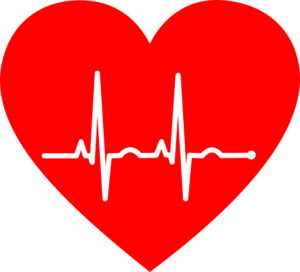

The term “diabetic heart disease” (DHD) refers to heart disease that develops in people who have diabetes. Diabetes is a disease in which the body’s blood glucose (sugar) level is too high. Normally, the body breaks down food into glucose and carries it to cells throughout the body. The cells use a hormone called insulin to turn the glucose into energy.
Major types of heart disease common in people with diabetes:
- coronary artery disease (CAD) and
- Cerebral vascular disease.
- Heart failure.
- Narrowing or blockage of the blood vessels in the legs, a condition called peripheral arterial disease
The statistics reveal that 1 in every 7 Indians has diabetes and 30% of all heart disease patients have diabetes. Heart disease in diabetes occurs at a younger age, is more extensive & is more difficult to treat. Good control of diabetes is essential to prevent onset & progress of coronary heart disease.
Classic symptoms of diabetes are sudden weight loss, polyuria (increased urination), polydipsia (increased thirst), and polyphagia (increased hunger). These symptoms may progress rapidly (within weeks or months) in type 1 diabetes patients, while type 2 diabetes patients may develop them slower or may even have negligible symptoms. However, in both type 1 and type 2 diabetic patients, glycated hemoglobin (non-fasting glucose levels in hemoglobin) is a better indicator for determining risk of cardiovascular diseases in diabetic patients. Such patients can benefit from educating themselves about their condition and treatment options available to them. Good, balanced nutrition to achieve normal body weight, regular exercise to maintain blood glucose levels at acceptable rate, and long-term lifestyle modifications like cessation of smoking are recommended to control blood pressure and other associated complication at bay.
Risk factors of heart disease for diabetes
People with diabetes tend to develop heart disease at an earlier age than other people. If you are middle-aged and have type 2 diabetes chance of having a heart attack is high. Women who have not gone through menopause usually have less risk of heart disease than men of the same age. But women of all ages with diabetes have an increased risk of heart disease.
High blood glucose levels over time can lead to increased deposits of fatty materials on the insides of the blood vessel walls. These deposits may affect blood flow, increasing the chance of clogging and hardening of blood vessels. Blockage of the blood vessels and high blood glucose levels damage heart muscle and cause irregular heartbeats. It is called cardiomyopathy and in diabetes patient symptoms may be mild or absent in the early stages due to a condition in which the heart rate stays at the same level during exercise, inactivity, stress, or sleep. Also, nerve damage caused by diabetes may result in lack of pain during a heart attack. But later they may experience weakness, shortness of breath, a severe cough, fatigue, and swelling of the legs and feet. Diabetes can also interfere with pain signals normally carried by the nerves.


Dr Mahantesh R. Charantimath
Senior Consultant Interventional Cardiologist
Tathagat Heart Hospital at Mallige Medical Centre premises,
No. 31/32, Crescent Road, Bengaluru – 01
Phone : 080- 22358888 | 9900356000
E-mail: mahanteshrc67@gmail.com
http://tathagathearthospital.com/











